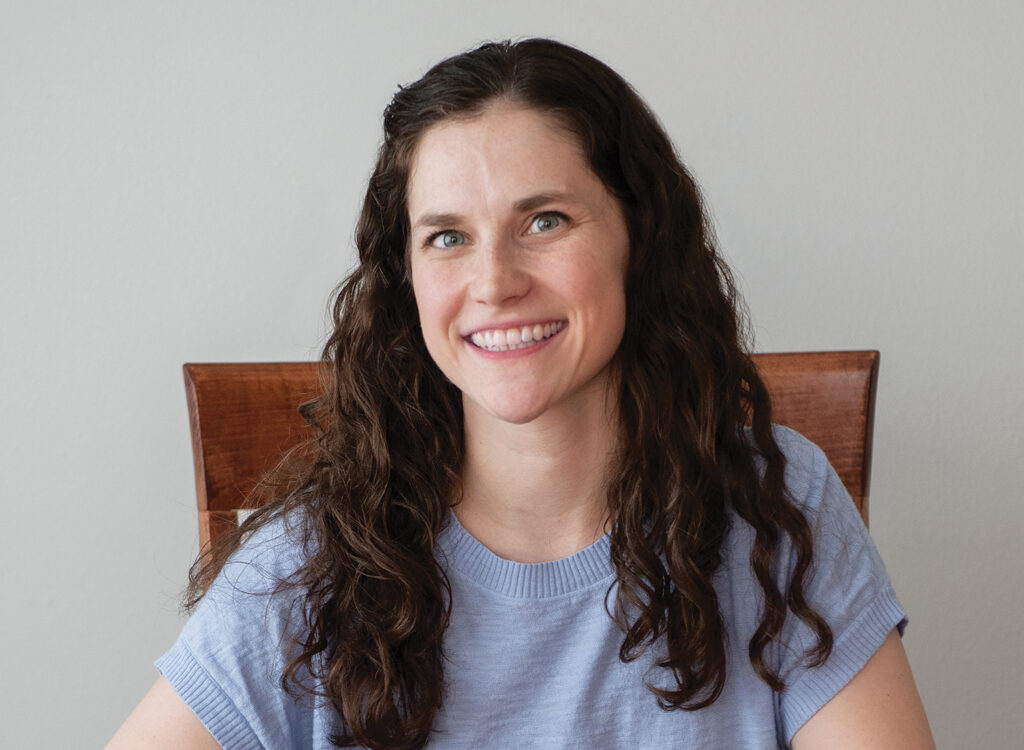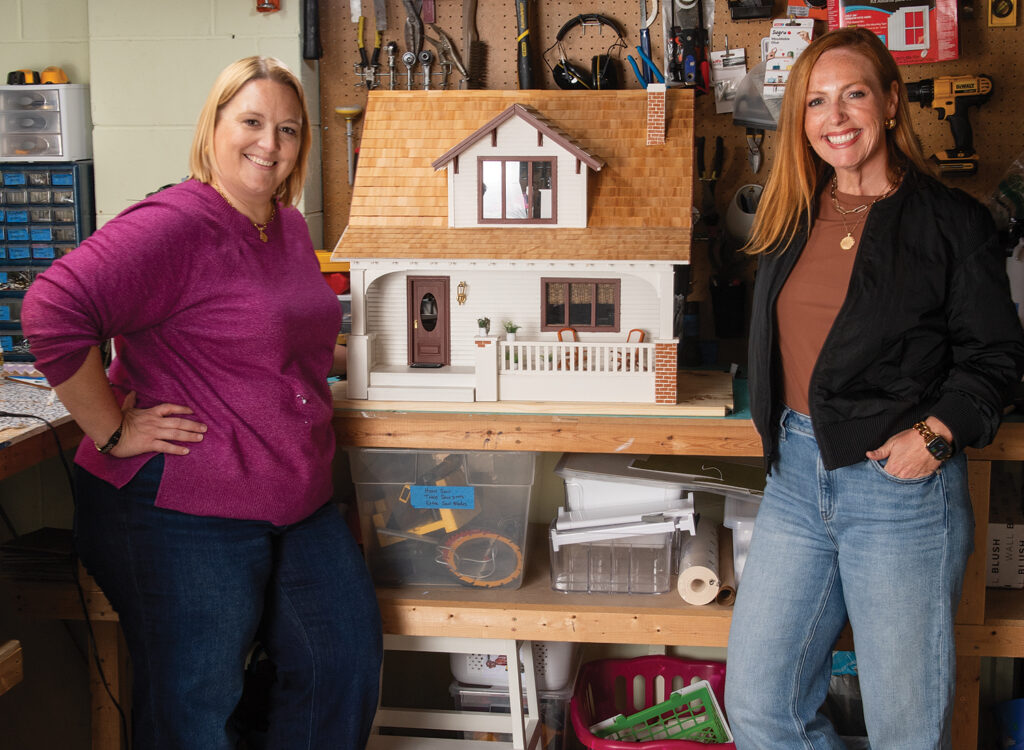Ready for growth: More members, investments ahead for FIN Capital

FIN Capital Investor Association, Iowa’s female angel investor network, is shaking off the fog of the pandemic and preparing to recruit more investor-members this year.
Despite the challenges created by the pandemic, FIN Capital has hosted member meetings and in recent months has returned to in-person pitch events. Even before the pandemic began, the group surpassed a significant investment milestone — passing $1 million in member funds collectively invested across its portfolio of companies.
The organization, whose acronym stands for Female Investors Network, was launched in September 2016 by a core of seven women business leaders. The impetus for the forming an angel network for female leaders came at the urging of then-Lt. Gov. Kim Reynolds and Iowa Economic Authority Director Debi Durham, who borrowed the idea from a visit to the Women’s Capital Connection, an angel network in Kansas City.
Originally operating under the wing of the nonprofit Iowa Center for Economic Success, FIN Capital attracted 25 accredited female investors by late 2016, a year ahead of its goal. The organization transitioned away from the Iowa Center in mid-2020, with the stand-alone organization formed on Jan. 1, 2021.
Last summer, FIN Capital’s board approached Natalie Battles, an experienced organizational professional, to step in as its executive director.
“They were looking to put some energy behind organizing the association and getting into a better meeting pattern — at that point, getting back to meeting in person and getting things going,” said Battles, who is president of Capture Management Solutions. She has been working with FIN Capital since July 2021.
“One of the other priorities that the group has at this point is to grow their membership,” Battles said. “They have seen some evolution since they started in 2016 — some members have come on and some members have come off, and so we’re looking to find those opportunities to get more accredited investors that are seeking this opportunity and be part of their group.”
The group currently has 17 active investor-members. If a member decides an investment is a good fit, the average stake taken in any one company is $5,000 per person, with $50,000 the usual minimum collective investment in a company.
FIN Capital’s vision has been to provide a forum for Iowa women, many of whom have run their own companies and have their own wealth, with the interest but no background in angel investing. On the investment side, FIN Capital does not limit its investments to women-owned businesses only, but has found that a good portion of the companies that seek funding have women in leadership roles.
Rowena Crosbie, founder of training company Tero International, joined FIN Capital about a year after it was founded, and has since been an active investor. She currently has ownership stakes in eight of the companies, and was asked by FIN Capital’s members to speak on their behalf to the Business Record. The organization keeps the names of its member-investors and companies in which it’s invested confidential.
“I am an entrepreneur, so I have a passion for entrepreneurship and growing our entrepreneurial culture,” Crosbie said. “So being a part of that in a variety of ways is of great interest to me. The reason I love this particular angel network is that you can get involved in a lot of investments with not a huge personal investment.”
Lots and lots of questions
Crosbie said FIN Capital’s membership diversity provides a great deal of security when assessing the potential risks of various investments.
“I think one of the things that’s very scary for investors is how do you know if you should invest in someone?” she said. “We’re [invested] in all kinds of businesses — some of them are in the medical field, some of them are in technology, some of them are in services. How can you possibly vet all that? We work in collaboration with each other, and you’ve got people who have different levels of expertise weighing in, so you feel good about the decision.”
Nine months each year — they take a break each summer — FIN Capital’s members meet monthly, hearing at least one pitch, sometimes two. “Occasionally we’ll skip a month [hearing pitches] so we can have a business meeting. And then there’s always time on the agenda for updates on the other investments that we’ve got,” Crosbie said.
Partnering with other regional angel networks has been a huge benefit, she said. “The angel networks do talk, and in fact, some of our referrals come from angel networks in other states. And I have to tell you, when you bring a group of women together — I apologize for the stereotype — but when they do due diligence, they seriously do due diligence.
“We had put together a due diligence committee, and those CEOs probably didn’t know what hit them — questions after questions after questions. That was a learning process for them, and for us. Even if we didn’t invest in them, they were always grateful because they hadn’t had to think that hard about their business until we came along. And one of the benefits of being part of a network of other angel investors is that the burden of diligence isn’t quite as heavy, because we can rely on the diligence efforts of other investor groups, and they can do that with us.”
Within FIN Capital, two members from each group that invests in a particular company are assigned to act as “authorized members,” responsible for staying in touch with the company’s CEO to stay up to date on the status of the business and their investment.
“We’re just getting started with some companies, and there are some I believe we’re getting pretty close to an exit,” Battles said. “There are some that are just getting ready to launch products. At our [latest] meeting, we talked about one that has some products on the National Mall [in Washington, D.C.] and getting a lot of exposure. So they’re in a variety of different stages, and that’s a really rich part of the discussion that takes place — just discussing where each company is at, getting a feel for what the companies are, what feedback members have. It’s fun to listen and to hear the different nuances of that life cycle of the investments.”
The pandemic actually provided some beneficial shifts that encouraged more statewide growth, Battles noted.
“By hosting some of our events virtually, that actually gives us the opportunity to engage our members who aren’t located right in the Des Moines area. We’ve got some members on both sides of the state. And so it’s nice that the groups coming to pitch to FIN, some of our pitches we’ve been able to do by Zoom with the companies and with our investors, and it’s worked really well.”
‘A bit of a risk tolerance’ needed
Expanding FIN Capital’s membership, and consequently its investment portfolio, would be “a win for the entrepreneurs and angels,” Crosbie said. “Angels aren’t like moms and dads, aunts and uncles. They’ve got more questions — so that helps the entrepreneur who has often not thought about all the business strategy and business implications think about their business in a little bit more powerful way.”
An important caveat that Crosbie conveyed from her fellow members was the importance of understanding that potential investors “have to have a bit of a risk tolerance if you’re going to do this.”
“This is not necessarily part of your 401(k) and planned retirement, but if you’ve got the resources to do this, the intangible wins are just so heartwarming,” she said. “I can’t tell you how happy you feel when you go to bed at night knowing you’ve helped some of these entrepreneurs. And it’s great for the investors, because we may get some exits and you’ll have a financial return on your investment as well.”
Putting on her Greater Des Moines Partnership chair hat for a minute, Crosbie also noted that one of Des Moines’ top priorities is boosting the entrepreneurial culture. “That recent Ernst & Young study showed that our level of innovation and entrepreneurship could use a little boost when compared to our peers around the country,” she said.
“You see Iowa State leaning into it, you see Drake leaning into it. And once somebody is inspired to start a business, well after you’ve tapped your friends and family, where do you go for funds?”
Female accredited investors who have an interest in learning more about FIN Capital should send an email to the organization at info@fincapitalangels.com to find out about attending a future meeting or talking with a board member to learn more about membership.











